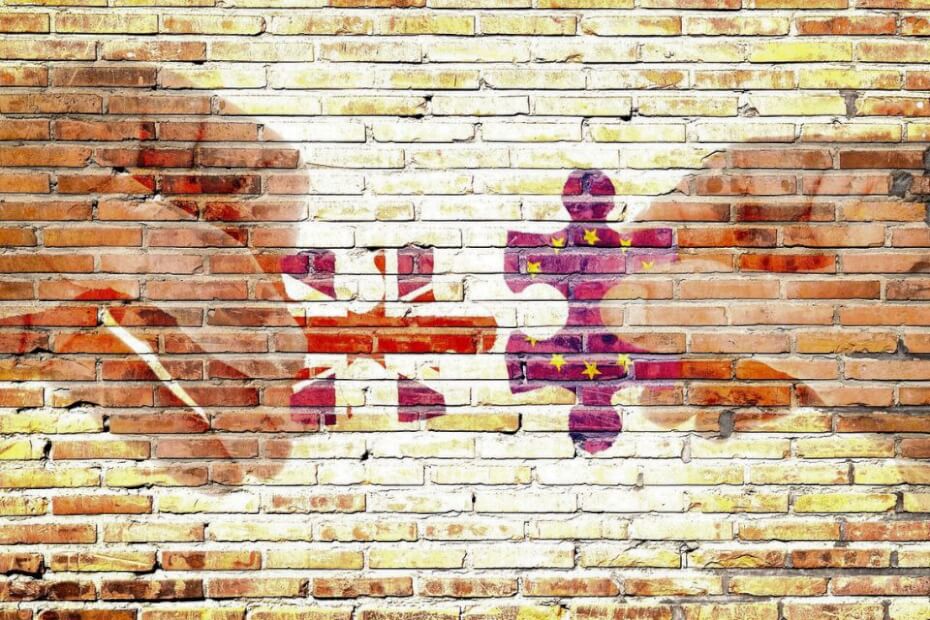
The European Union (EU) has outlined a list of demands for the United Kingdom (UK) to improve its post-Brexit relations.
UK Prime Minister Sir Keir Starmer has expressed his administration’s desire to mend ties with the EU.
He aimed to achieve this through a comprehensive security agreement and negotiating more favorable trade conditions.
However, the EU sent a list of demands the UK must first fulfill to demonstrate genuine commitment.
According to The Financial Times, the EU’s demands focus on enforcing the Withdrawal Agreement and fostering new cooperation.
The aim is to rebuild trust and stability between the two parties.
Compliance with the Withdrawal Agreement
The EU’s primary demand to repair post-Brexit relations is for the UK to fully comply with the Withdrawal Agreement.
The Withdrawal Agreement safeguards the rights of EU citizens residing in the UK and UK nationals living in the EU at the end of the Brexit transition period in 2020.
It also applies to EU citizens who moved to the UK or UK nationals who relocated to an EU Member State during the transition period.
Those covered under the Withdrawal Agreement maintain the right to live, work, study, and travel freely between the UK and the EU.
It essentially preserved the status quo before the UK departed from the European bloc.
The EU recently sent a formal request for the UK to address specific issues regarding the Withdrawal Agreement.
The UK has two months to respond, or the EU may take legal action through the European Court of Justice.
Ensuring the Northern Ireland Protocol
The Northern Ireland Protocol is a key part of the Withdrawal Agreement, and the EU insists that the UK fully implements it.
The Protocol states that the UK should not establish a hard border between Northern Ireland and the Republic of Ireland.
This is crucial for maintaining peace and stability in the region.
Rights of EU Citizens living in the UK

The EU demands that the UK guarantees the rights of EU citizens living in England, Wales, Scotland, and Northern Ireland.
Many issues surround the European Union Settlement Scheme (EUSS), which has strained post-Brexit relations between the UK and the EU.
The EUSS is the UK body that implements the rights of EU citizens covered by the Withdrawal Agreement.
Many EU citizens living in the UK have had trouble applying for settled or pre-settled status.
Those under pre-settled status have also had difficulty landing jobs or keeping them due to their uncertain immigration status.
One diplomat told The Financial Times via an interview, “This needs to be fixed before we talk about cooperation in new areas.”
The EU demands that the UK uphold a High Court ruling which states that EU citizens residing in the UK should not have to apply separately for settled status after living in the UK for five years.
For its part, the UK revised its EUSS late application guidelines to cover EU citizens who may not have been aware of the new rules.
The Home Office has also extended the validity of those with pre-settled status for five more years.
It is also working to automatically update their status to settled status once they have met the five-year residency requirement.
The expiry dates for pre-settled statuses are now hidden from digital profiles, and employers and landlords no longer need to conduct repeat checks on pre-settled status holders.
UK-EU Youth Mobility Agreement
Under a youth mobility agreement, young people aged 18 to 30 from the EU and the UK can live, work, study, and travel in each other’s territories for up to a certain amount of years.
The lack of such an agreement between the UK and the EU has been one of the major impacts of Brexit, limiting opportunities for young people.
The new UK Labour Government reportedly refused the idea of a youth mobility deal with Spain.
The previous Conservative Government also rejected a possible EU-wide youth mobility agreement offer.
The EU’s proposed youth mobility deal differs from the UK’s current youth mobility deals with other countries.
Aside from removing the participant quota, it seeks to address various barriers that have emerged post-Brexit.
These include ensuring fair treatment regarding tuition fees for higher education, as EU students now face international fees in the UK.
It also aims to make visa and residence permit costs more reasonable, reducing financial burdens on young people.
However, the UK has been firm in its refusal to rejoin the EU single market to reintroduce freedom of movement.
It is leaning more towards youth mobility schemes with a country-by-country approach rather than an EU-wide scheme.
Rejoining the Erasmus program
The EU wants the UK to rejoin the Erasmus program, which the UK left post-Brexit.
Erasmus is an EU program that offers opportunities for young people to study or train in different EU countries with financial support.
Rejoining Erasmus enhances educational opportunities and fosters mutual understanding between young people in the UK and the EU.
In April, the EESC approved a proposal urging the EU to negotiate with the UK to rejoin the Erasmus program.
According to a veteran UK diplomat, Nick Leake, the UK opted out of the Erasmus program due to financial constraints.
He revealed that the cost of participation in the program exceeded the expected benefits.
Leake added that more overseas students want to study in the UK than British citizens with language skills and a desire to study abroad.
Safe movement of goods and pets

The EU wants to improve the UK’s compliance with trade policies to repair post-Brexit relations.
The following demands aim to ensure the smooth and safe movement of goods and pets between the UK and the EU.
Animal and Plant Certification
The EU has raised concerns about the UK’s certification of animal and plant products.
They demand accurate certification to avoid trade disruptions.
Non-compliant consignments should be rejected at the border to ensure safety and compliance with EU standards.
Pet Checks
The EU also asks the UK to deploy a scheme to check pets at the border urgently.
Parcel Data System
Additionally, the EU wants a new system that provides data on parcels’ contents as soon as possible.
Future of UK-EU post-Brexit relations
The EU’s demands aim to create a framework for cooperation and ensure that renewed relations benefit both parties.
The proposed mobility agreements and compliance with the Withdrawal Agreement are essential steps towards achieving this goal.
The coming months will be crucial as both sides discuss these issues, strive to find common ground, and mend post-Brexit relations.
Still, the emphasis on youth mobility highlights the shared interest in fostering future generations’ opportunities.
Despite the challenges, there is hope they can rebuild their relationship and work together for a better future.

